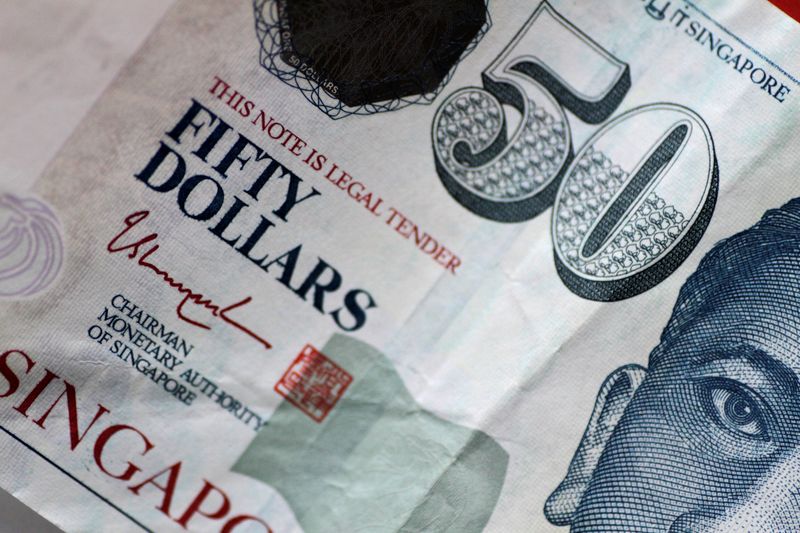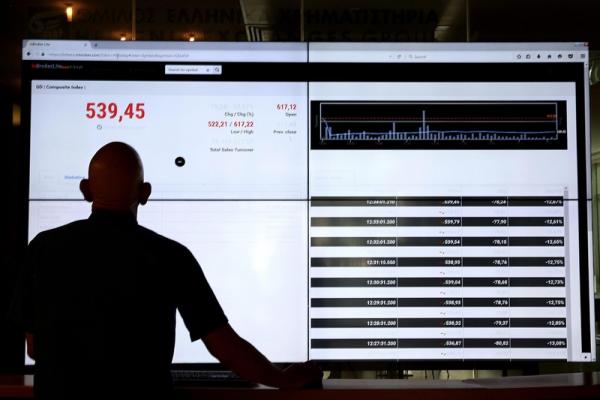By John Biju and Sameer Manekar
(Reuters) – Investors have sharply increased their short bets on Asian currencies, turning bearish on the Singapore dollar for the first time since early July, on growing concerns that newly-elected U.S. President Donald Trump’s policies could undermine the attractiveness of the risk-sensitive emerging markets. assets.
Short bets on the Singapore dollar emerged for the first time in four months and were at their highest in late June, while those on the South Korean won and Taiwan dollar reached their highest levels in six months, a Reuters poll showed on Thursday among ten respondents.
Trump’s resounding victory in the US presidential election last week sent shockwaves across emerging markets as his policy of imposing tariffs on Chinese imports fuels inflation, which could mean a shallower-than-expected easing cycle in the United States.
The dollar rose to a one-year high in days, putting pressure on regional assets.
The Malaysian ringgit and the Thai baht have lost about 4% since the US election results became clear last week. Their trade-dependent economies, especially with China, make them vulnerable to tariff-related headwinds.
“Despite robust domestic fundamentals in strong growth and falling inflation, Asia FX will face the dual challenge of higher US interest rates and likely higher rates by the US in 2025, resulting in a stronger USD,” ING analysts said.
“Asian currencies with higher sensitivity to the CNY and larger trade surpluses with the US would face the highest depreciation pressures.”
ING analysts say the South Korean won stands out on both counts, predicting the currency will remain weak throughout the year.
Respondents to the poll had the worst view of winnings, with short bets rising to their highest level since early May.
Bearish bets on China’s yuan were at their highest since late June, with analysts expecting Southeast Asia’s largest trading partner to be hit by sweeping US tariffs.
Chang Wei Liang, currency and credit strategist at DBS, struck a somewhat optimistic tone, saying the yuan may not be the biggest loser if tariffs are imposed with a manageable impact of less than 1% of the $18 trillion economy.
Views on the Singapore dollar have changed in the past two weeks as the trade-reliant economy faces uncertainty from potential global trade headwinds.
“If tariffs are introduced, their impact on ultra-open Singapore is likely to be significant,” said Brian Tan, senior regional economist at Barclays (LON:), said.
Tan expects the Monetary Authority of Singapore to ease its exchange rate-based monetary policy next year.
Elsewhere, short bets on the Taiwan dollar, Indian rupee, Philippine peso and Indonesian rupiah rose.
The Asian currency positioning poll focuses on what analysts and fund managers believe are the current market positions in nine Asian emerging market currencies: the Chinese Yuan, the South Korean Won, the Singapore Dollar, the Indonesian Rupiah, the Taiwan Dollar , the Indian rupee, the Philippine peso, the Malaysian ringgit and the Thai baht.
The poll uses estimates of net long or short positions on a scale of minus 3 to plus 3. A score of plus 3 indicates that the market is significantly long in US dollars.
The figures include positions via non-deliverable forwards (NDFs).
Below are the survey results (US dollar positions versus each currency):
DATE
14-Nov-24 1.14 1.61 0.8 0.81 1.07 0.87 0.65 1.18 0.9
31-Oct-24 0.30 1.06 -0.03 0.59 0.6 0.82 0.11 0.81 0.09
17-Oct-24 -0.43 0.26 -0.44 0.04 0.24 0.67 -0.4 0.26 -0.28
03-Oct-24 -1.14 -0.79 -1.26 -1.08 -0.59 -0.04 -1.18 -0.7 -1.45
19-Sep-24 -0.67 -0.9 -1.12 -1.18 -0.66 0.33 -1.3 -1.1 -1.33
05-Sep-24 -0.85 -1.09 -1.26 -1.05 -0.77 0.21 -1.46 -1 -1.22
22-Aug-24 -0.62 -0.93 -1.08 -1.26 -0.7 0.21 -1.57 -1.03 -1.16
08-Aug-24 -0.02 0.05 -0.61 -0.02 0.59 0.6 -0.78 -0.29 -0.57

25-Jul-24 1.07 0.79 -0.33 0.35 0.86 0.12 0.39 0.43 0.02
11-Jul-24 1.05 0.87 0.06 0.73 0.68 0.22 1.03 0.86 0.51


